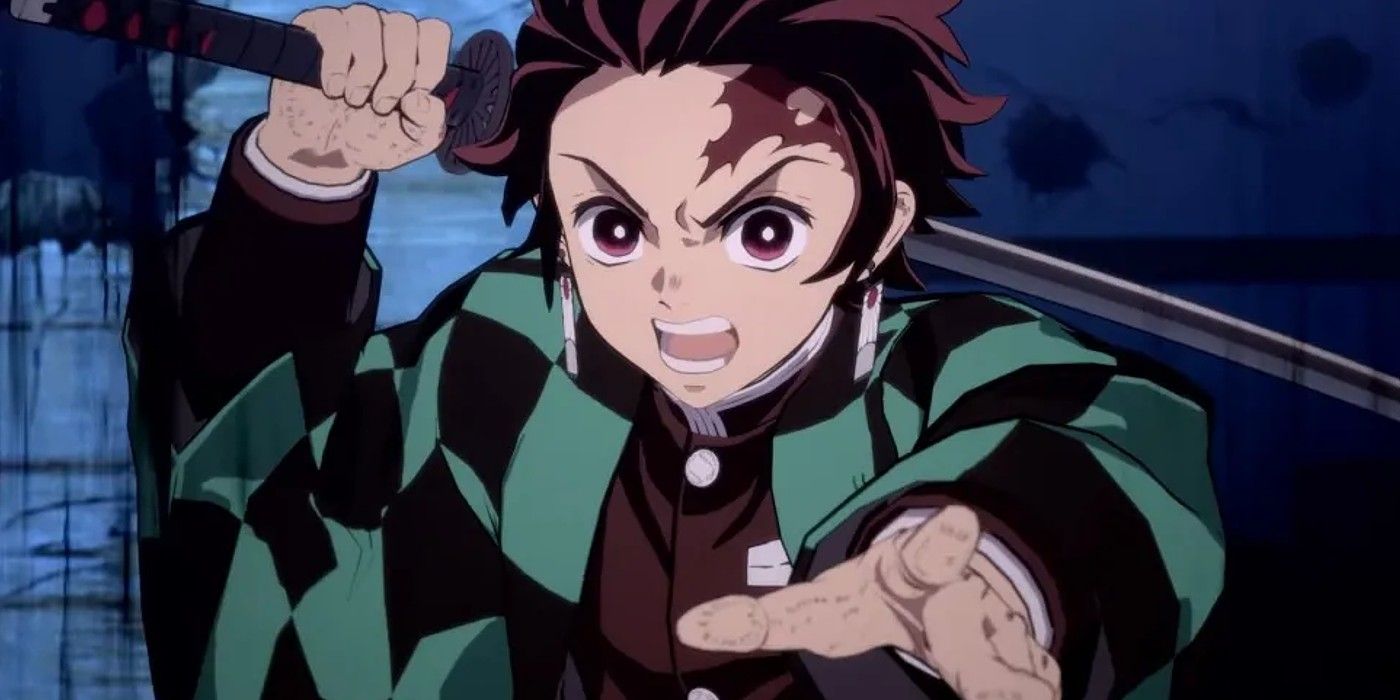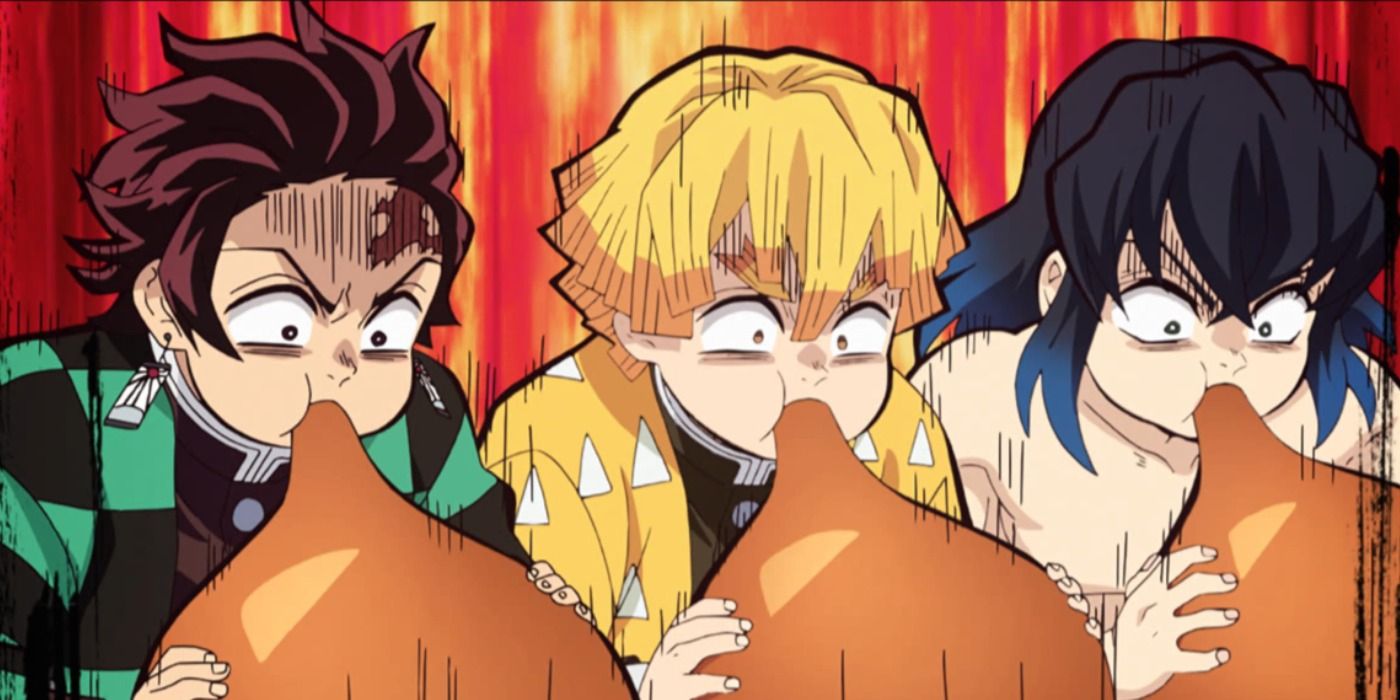The Demon Slayer movie's success could repeat a common anime problem. The film, Mugen Train, took place immediately after season 1 of the anime and told the next story arc in the manga. That story saw Tanjiro Kamado, his sister Nezuko, and fellow Demon Slayers Zenitsu Agatsuma and Inosuke Hashibira teaming up with the Flame Hashira, Kyojuro Rengoku, to stop a demon that had been hiding on a train. The movie was extremely successful, rising to the top spot in Japan's box office rankings as well as becoming one of the highest-grossing anime films of all time.
Since the movie told a canonical story from the manga, creators decided to re-release it as part of the anime series before officially starting season 2. Mugen Train was cut up into smaller episode chunks for viewers who did not want to watch the film or weren't able to when it hit theaters. Some fans have expressed annoyance at having the same story essentially be told twice in a row, but Mugen Train's success highlights a larger problem with many anime movies.
That problem is that anime creators often don't know how to treat their films. For franchises like Dragon Ball Super, canon movies were frequently repeated in the main anime series for anyone unable to watch the film. In the cases of other IP, however, the movies were considered semi-canon at best. This was the case with My Hero Academia, which included tie-ins for its films within the anime series even though they were technically not connected. The movies could very easily have taken place without upsetting the canon story, but creators never seemed quite sure just how canon they were meant to be. Having spinoff films that explore other possible scenarios or flesh out minor characters can be fun, but the stakes are significantly lowered if viewers know the events don't actually matter in the larger scheme of things.
The popularity of the Demon Train movie makes it incredibly likely that it won't be the last in the Demon Slayer franchise. Yet, considering how Demon Slayer felt the need to retell the Mugen Train arc for the anime, any future movies will likely not be canon. While this can be good in some ways, the inconsistency of anime films' canon status can make it difficult to keep track of what actually matters for the main story. Ideally, either all the films should be canon or none of them should, with everyone involved in the franchise on the same page about it.
Beyond the confusion, modern fans of pop culture IP are deeply invested in the idea of what's canon and what's not, with many seeing non-canon stories as having less value as they don't "count." If the success of Demon Slayer: Mugen Train encourages future spinoffs within the same universe, it should be made clear from the start whether or not it's canon to the main story. Although some fans were upset with Demon Slayer season 2 beginning by retelling the same story instead of exploring a new narrative, it highlighted a larger problem with making canon films directly connected to the central story. Regardless, whatever they choose is likely to be another box office hit.


